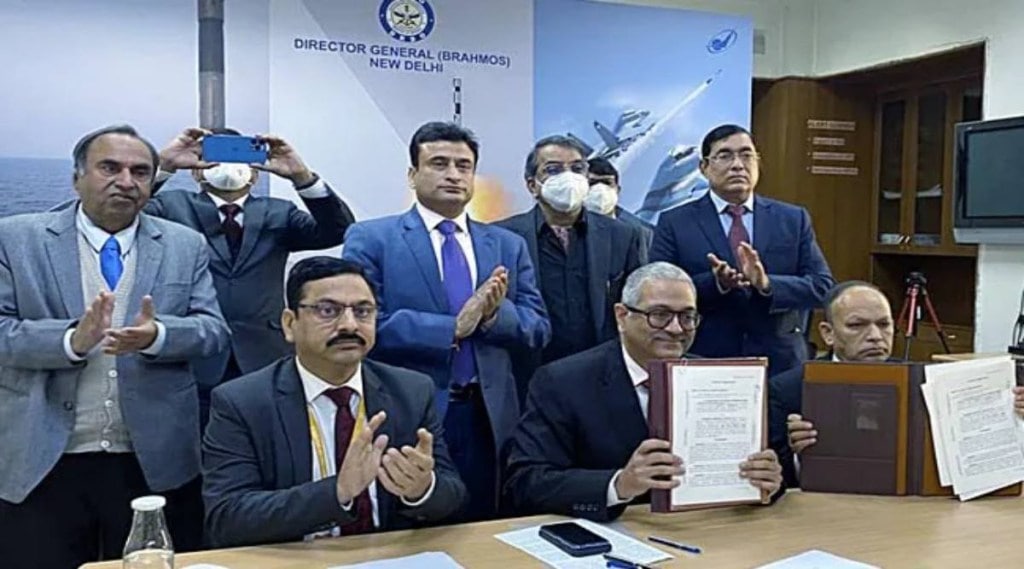By Dr Pooja Bhatt
Jaishankar’s upcoming visit to Manila is crucial for furthering India’s regional aspirations of strengthening its bilateral relationships. In the face of recent geopolitical realities that have been worsened by the Covid-19, the Philippines is seeking to diversify its defence and economic portfolio as a part of its foreign policy engagements. In this background, India and Philippines’ relationship needs to find their unique lock-and key component that fits each- other’s requirements and ambitions seamlessly.
The successful Quad Foreign Ministers meet in Australia earlier this week, comes simultaneously with the release of the recent US Indo Pacific Strategy. Both the documents have stressed Free and Open Indo-Pacific, maintaining regional security and stability, rejecting coercive use of coercive power, and providing strategic autonomy to the nations. Similar views are reflected in India’s regional vision under Act East policy and SAGAR that seek bolstering relationships with the South East neighbours and security of growth of all the nations in the larger Indian Ocean region.
Realistically speaking, the Philippines is just like a developing country like India, and therefore the two countries are still finding synergies in their trade and economic vertical of cooperation. Data from the Philippine Statistics Authority showed Philippine exports to India reached $547.98 million, while the country’s imports from India amounted to $1.51 billion in 2020.
The reasons for the trade deficit need to be acted upon soon. Presently, India is the largest supplier of beef products and the second-largest supplier of dairy products to the Philippines. In turn, India is a favored nation by the Filipinos for medical treatments for its relatively inexpensive world-class quality medical infrastructure.
The 13th India Philippines Joint Working Group on Trade and Investments (JWGTI) Meeting, decided to work towards a Preferential Trade Agreement (PTA). The said agreement when realized would reduce or even end the tariffs to increase trade in terms of both value and volume. Currently, the focus is on sectors like pharmaceuticals, IT, and financial technology- areas where India is strongly placed and the two countries are working on the conclusion of the Preferential Trade Agreement. During a virtual meeting with the Philippines foreign minister, India was invited to join the International Solar Alliance Disaster Resilient Infrastructure in addition to offering higher educational opportunities to scholars and students. Tourism as a cross section of economy, people to people and cultural exchange, is another area that where Manila seeks India needs to consider.
From the vantage point of security, India has a larger vision for the region whereas the Philippines is still facing immediate internal security concerns in terms of radicalization and terrorism, and slow economic development. The external security environment has been threatened by China.
Brahmos sale needs to be seen as a part of the relationship. In January 2022, the Philippines signed a $375 million agreement of 3 batteries of shore-based anti-ship missile Brahmos missile for upgrading Manila’s coastal defence capabilities. As the Philippines is facing maritime aggression from China towards its maritime claims (Mischief Reef, Scarborough Shoal in the South China Sea) but also a continuous threat to its fishermen by PLA Navy within its own EEZ. The current Brahmos missile with its reportedly 290kms range acts as a maritime defence buffer within its 200nautical mile (or 370km) Exclusive Economic Zone.
However, only a few missiles remain insufficient for its security. The Philippines needs a complete strengthening of its military infrastructure to be able to defend its territorial and maritime interests against aggression. India has already offered to provide a coastal surveillance radar system to the Philippines to help bolster its maritime domain awareness. The current level of military engagements includes naval ship port visits, joint training, and exercise. Countries need to figure out the other areas where military training and cooperation can be carried out. In this regard, the appointment of an Indian naval attache to Manila needs to be realized as a progressive step.
India on the other hand has been aiming at increasing defence exports to boost its defence manufacturing and production. It aims to become a bigger arms exporter to generate revenue of $5 billion by 2025. According to March 2021 SIPRI report, India is among the top five arms importers but the 24th largest defence exporter. The Philippines, on the other hand, is seeking defence suppliers in addition to the United States and South Korea.
At the regional level, India has been expanding its cooperation with ASEAN in the areas of drug and human trafficking cyber and critical technology, countering disinformation, counterterrorism, maritime security, humanitarian and disaster response (HADR), and climate change. New Delhi has repeatedly expressed its support to ASEAN centrality and its vision for Indo-Pacific. The maritime domain presents both challenges and opportunities, it has emerged as a significant vertical for cooperation in the region in the recent India- ASEAN meetings. To deal with challenges and opportunities, India aims to work with individual ASEAN countries for capacity-building and technical assistance, to strengthen maritime domain awareness, uphold regional peace and security consistent with international laws, and strengthen regional security architecture.
Within the larger global focus on the Indo-Pacific region, India has its regional dynamics of political relationships. Just as the US, EU views India as its regional partner in its Free Open, prosperous and resilient Indo-Pacific strategy; New Delhi is finding new avenues of cooperation given the geopolitical realities, aligning its regional aspirations with other like-minded countries within its economic and resource limitations that have exacerbated by the pandemic since 2020. The synergies between the two countries are known but EAM Jaishankar’s visit to the Philippines has to concretise them.
(The author is a Maritime Security Expert and has a Ph.D. in Disarmament Studies from Jawaharlal Nehru University. Views expressed are personal and do not reflect the official position or policy of Financial Express Online. Reproducing this content without permission is prohibited).

